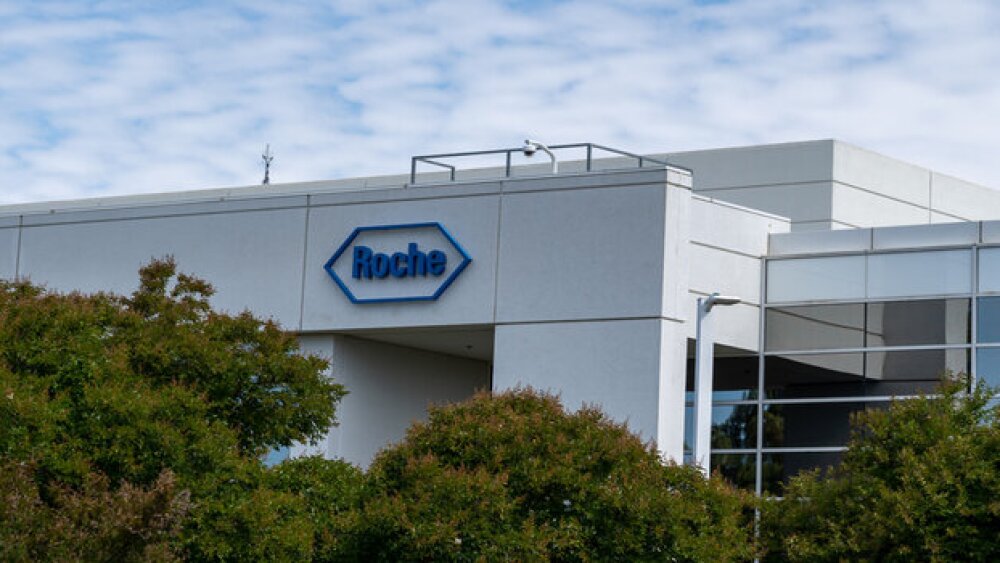In Monday’s neurology update for investors, Roche touted data from a small Ib/IIa trial for trontinemab, an investigational therapy for Alzheimer’s disease which demonstrated “rapid and robust” amyloid plaque reduction.
Pictured: Roche Diagnostics building in California/iStock, JHVEPhoto
Roche in a virtual investor event on Monday unveiled promising Phase Ib/IIa data for an investigational Alzheimer’s therapy that could define the pharma group’s neurology franchise in the coming years.
The event spotlighted mid-stage results for trontinemab, an investigational monoclonal antibody targeting amyloid-beta being assessed in Alzheimer’s. Data were presented by Azad Bonni, senior vice president and global head of neuroscience and rare diseases at Roche, which “demonstrated rapid and robust amyloid plaque reduction.”
Developed using Roche’s proprietary Brainshuttle platform, trontinemab can cross the blood-brain barrier and achieve higher levels of brain exposure and broader distribution across the central nervous system, according to the company. The antibody was assessed in a Phase Ib/IIa dose-escalation trial with a staggered, parallel-group and adaptive study design, with four sequential cohorts receiving increasing doses of trontinemab or placebo.
At 28 weeks, patients who received the lowest 0.2-mg/kg dose of trontinemab saw a mean amyloid reduction of 20 centiloid units, compared to only five centiloid units in the placebo group. The second-highest dose of 1.8-mg/kg elicited a mean amyloid drop of 84 centiloid units.
The highest dose of trontinemab—3.6-mg/kg—did not have 28-week data available for analysis, but at 12 weeks, it demonstrated further acceleration of clearance of amyloid plaques. Majority of patients who were treated at this dose level fell below the threshold of amyloid positivity at 12 weeks.
Trontinemab was also safe and well-tolerated overall, with only one documented case of amyloid-related imaging abnormality (ARIA) indicative of edema, and another such abnormality suggestive of microhemorrhages. Both ARIA cases occurred in the second-highest dose cohort.
These promising Alzheimer’s data follow Roche’s previous failures in the field, which had far-reaching implications for the industry. In June 2022, crenezumab failed a Phase III trial, unable to slow or prevent Alzheimer’s disease in people with healthy mutation who were harboring a specific gene mutation associated with early-onset Alzheimer’s disease.
The monoclonal antibody in 2019 had previously failed two other late-stage trials in early Alzheimer’s, forcing Roche to discontinue both studies.
A few months after crenezumab’s third flop, Roche again stumbled. In November 2022, another investigational Alzheimer’s therapy—ganenterumab—fell short of its primary efficacy endpoints in the GRADUATE I and GRADUATE II studies, which demonstrated that the candidate could not significantly slow clinical decline versus placebo.
During Monday’s investor event, Roche also unveiled long-term data for its investigational antibody prasinezumab showing that the candidate could slow motor progression in Parkinson’s disease. However, Roche was quick to caution that the current data supporting prasinzeumab are still exploratory and need to be verified in independent trials.
Tristan Manalac is an independent science writer based in Metro Manila, Philippines. Reach out to him on LinkedIn or email him at tristan@tristanmanalac.com or tristan.manalac@biospace.com.






